Agricultural exports play a crucial role in Vietnam's economy. The agricultural sector not only provides a rich source of food and agricultural products but also creates numerous jobs, contributing to economic development and international integration. Agricultural products are one of Vietnam's main export items, significantly contributing to the country's foreign exchange earnings.
Concept of Agricultural Products
Currently, the concept of "agricultural products" is understood differently by various international organizations and Vietnam.
According to the World Trade Organization (WTO)
Agricultural products include items from chapters 1 to 24 (excluding fisheries) and certain products from other chapters in the Harmonized System (HS) of goods description and coding. This means agricultural products include goods originating from agricultural activities such as rice, coffee, pepper, cashew nuts, tea, fresh vegetables, wheat, flour, milk, live animals, etc., and processed agricultural products such as bread, butter, meat, cooking oil, confectionery, dairy products, soft drinks, alcoholic beverages, tobacco, cotton, etc.
According to FAO
According to FAOagricultural products are any product or commodity in its raw or processed form, sold for human consumption (excluding salt, additives, and water) or for livestock feed.
According to Vietnam
In Vietnam, the concept of agriculture is broader, including livestock, cultivation, forestry, salt production, and fisheries. Therefore, agricultural products include products from these activities. The agricultural, forestry, and fishery processing industries are classified as industrial sectors.
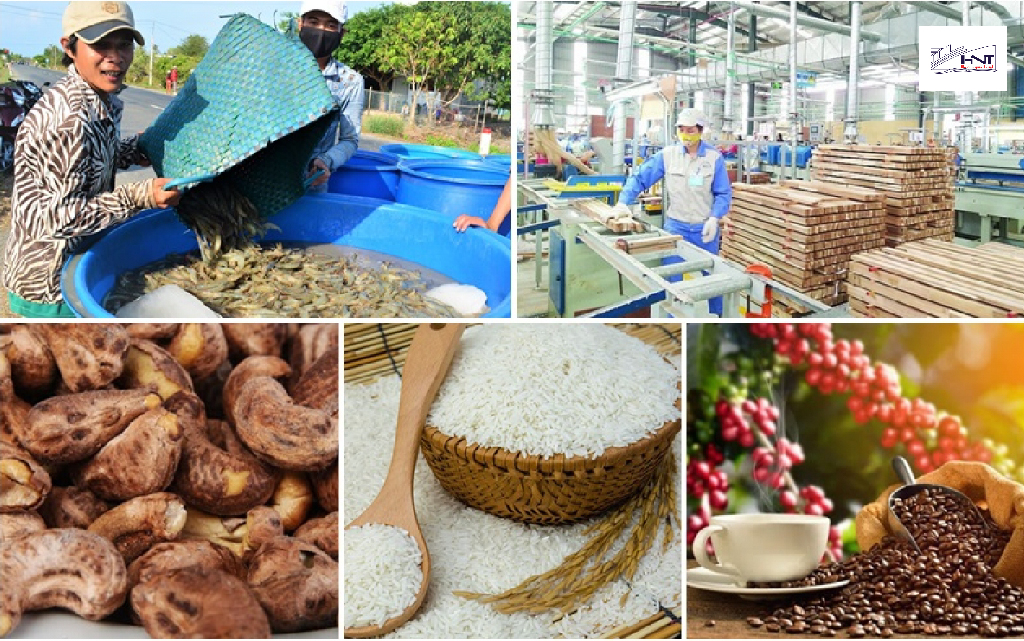
Agricultural Products in Vietnam Include Fisheries and Salt Production
Thus, it can be seen that the definition of agricultural products varies between international organizations and Vietnam. For example, according to WTO and FAO, items like confectionery, soft drinks, alcoholic beverages, sugar, and milk are classified under agriculture, while in Vietnam, they are classified as industrial products. Conversely, Vietnam classifies fisheries, forestry, and salt production under agriculture, which international organizations do not recognize.
This leads to significant discrepancies in the value of agricultural production and exports of some countries when reported by international organizations like WTO and FAO.
Concept of Agricultural Exports
Exporting goods is the activity of selling goods or services to another country to expand the market and promote the trade and economic development of that country. In other words, exporting is an international business activity that connects production and consumption between countries.
According to the 2005 Vietnam Commercial Law, exporting goods is defined as the activity of organizations and units bringing goods out of the Vietnamese territory or into special zones as prescribed by law.
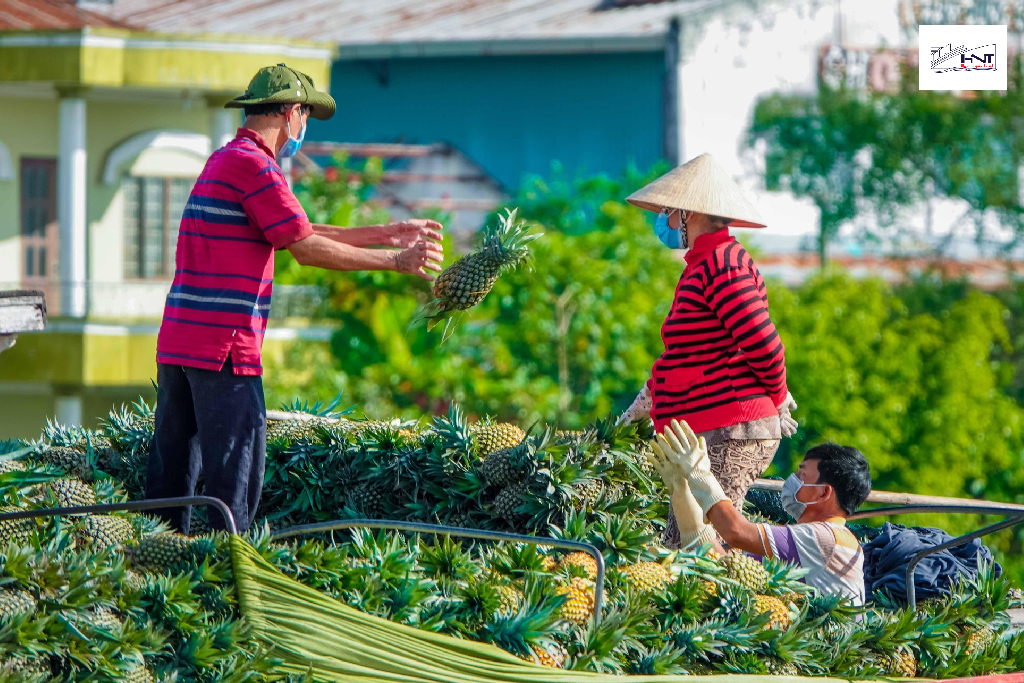
Improving Product Quality to Enter the International Market
So, what is agricultural export?
This is the activity of taking agricultural products outside of Vietnam's territory or into special zones as prescribed by law and selling them to other countries for economic profit, including:
- Export of Fresh Agricultural Products: Examples include rice, coffee, vegetables, fisheries, etc.
- Export of Processed Agricultural Products: Examples include confectionery, soft drinks, canned meat, cooking oil, etc.
The Importance of Agricultural Exports to Vietnam
- Increasing Farmers' Income: When agricultural products are exported, the selling price is usually higher than domestic prices, helping farmers increase their income and improve their living standards.
- Promoting Economic Development: Agricultural exports increase export turnover, attract foreign investment, create more jobs, and boost domestic economic development.
- Diversifying Markets: Expanding consumption markets reduces dependence on the domestic market and enhances the competitiveness of Vietnamese agricultural products in the international market.
- Enhancing National Prestige: When Vietnamese agricultural products are exported to many countries, Vietnam's status and reputation in the international market are also enhanced.
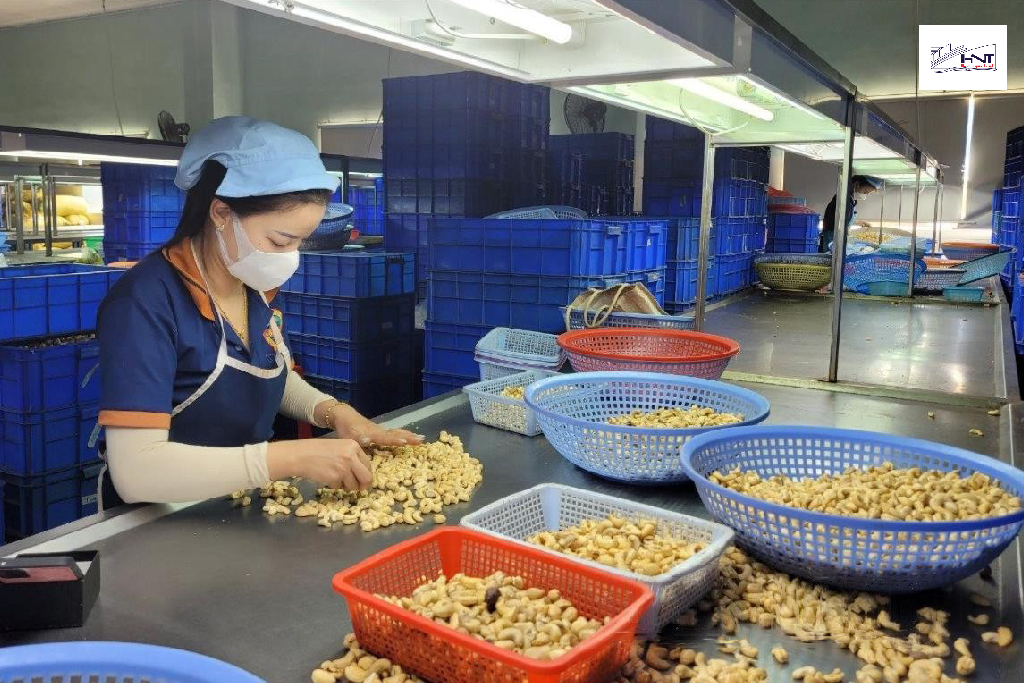
Export Brings Many New Job Opportunities for Domestic Workers
See more: Services, Shipping Cargo North-South
The Role of Agricultural Exports in the Economy
This plays an important role in the economy of each country, specifically:
- Promoting Economic Development: Agricultural exports increase export turnover, attract foreign exchange, and boost the country's economic growth.
- Increasing Farmers' Income: When agricultural products are exported to the international market, the selling price is usually higher than the domestic market, helping farmers increase their income and improve their living standards.
- Diversifying Markets: Agricultural exports expand consumption markets, reduce dependence on the domestic market, and help farmers access potential international markets.
- Improving Product Quality: To meet the strict requirements of the international market, enterprises and farmers must improve product quality, apply advanced production standards, and ensure food safety.
- Encouraging Agricultural Production: Agricultural exports open up development opportunities for agricultural production, encouraging people to apply science and technology to production to improve productivity and product quality.
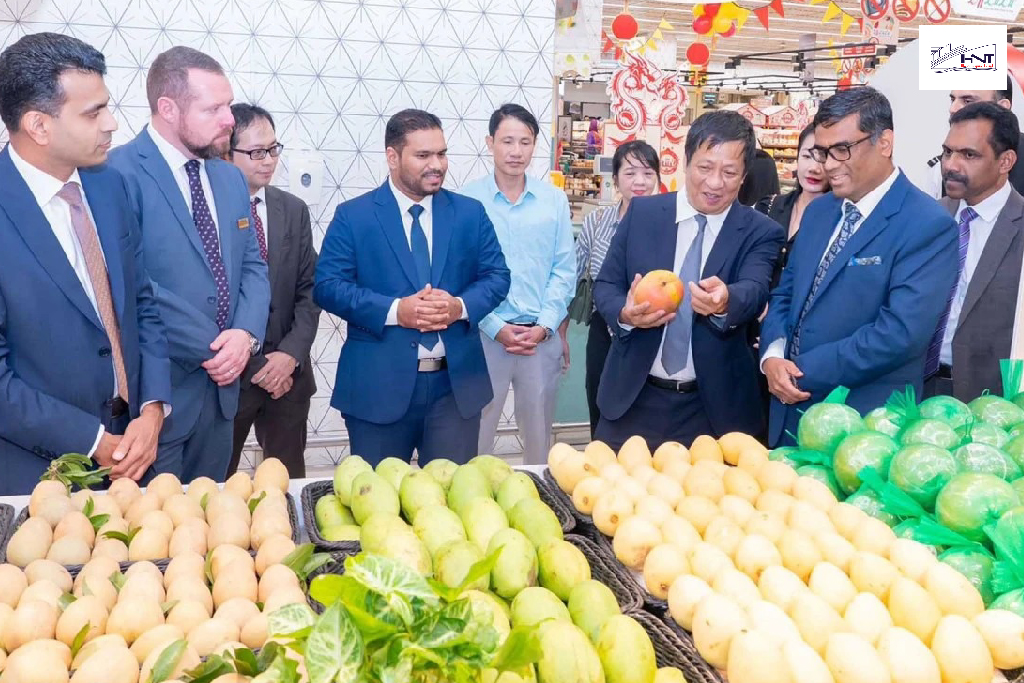
Expanding the Consumption Market for Vietnamese Agricultural Products
Conclusions
Agricultural exports play a crucial role in Vietnam's economy, contributing to growth, job creation, and increasing farmers' income. Agricultural products are a key export item of Vietnam, providing substantial foreign exchange earnings and contributing to the overall development of the country.
To promote this, practical and effective solutions are needed. Improving product quality, diversifying export markets, and implementing appropriate support policies are key factors to increase the effectiveness of agricultural exports.
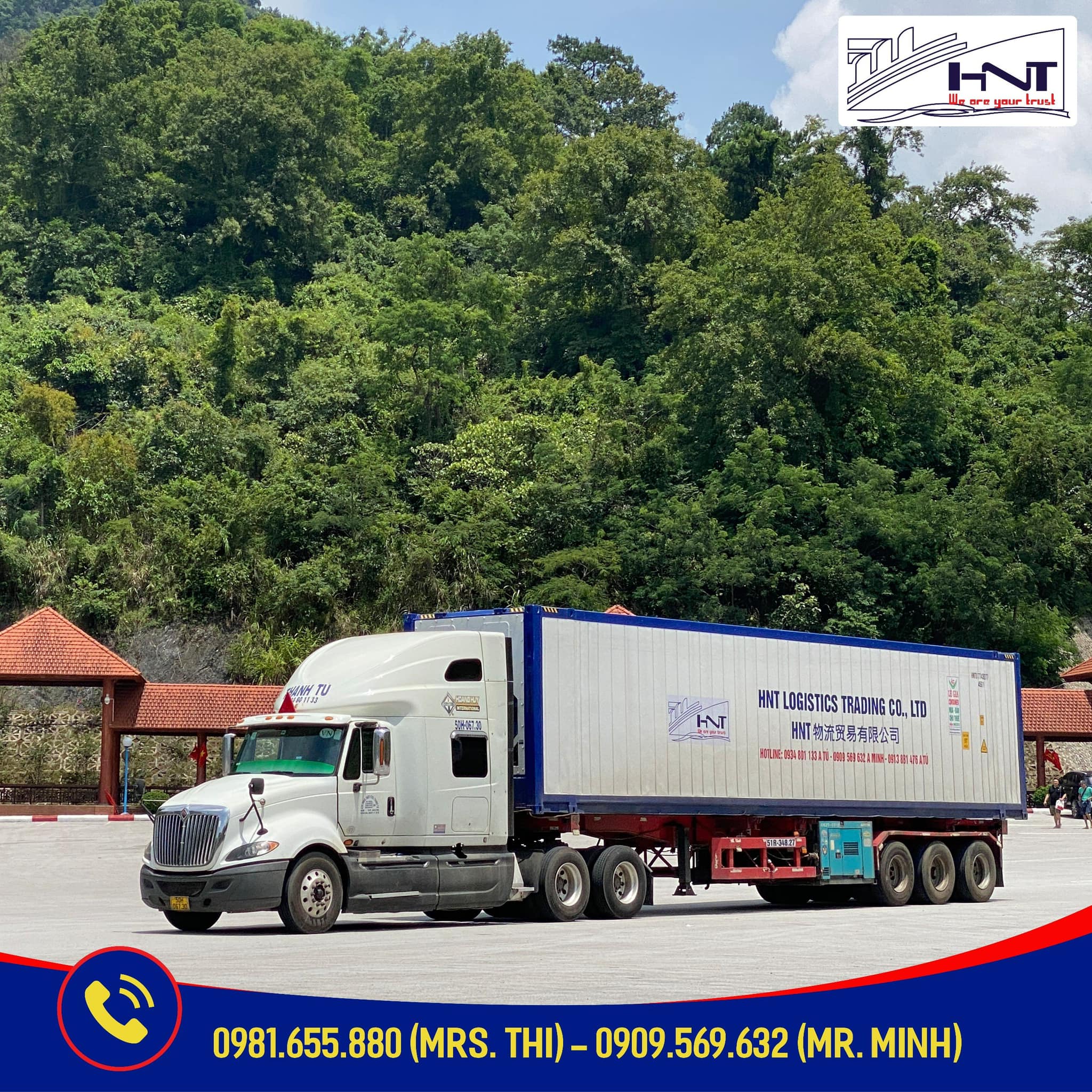
HNT, Container Transport Unit
Alongside this, using professional and reputable agricultural product transport services plays an essential role in supporting enterprises and farmers to bring products to the international market. HNT Logistics with a team of experienced staff, modern warehouse systems, and an extensive transportation network, commits to providing fast, safe, and cost-effective transport services, contributing to enhancing the competitiveness of Vietnamese agricultural products in the international market.




